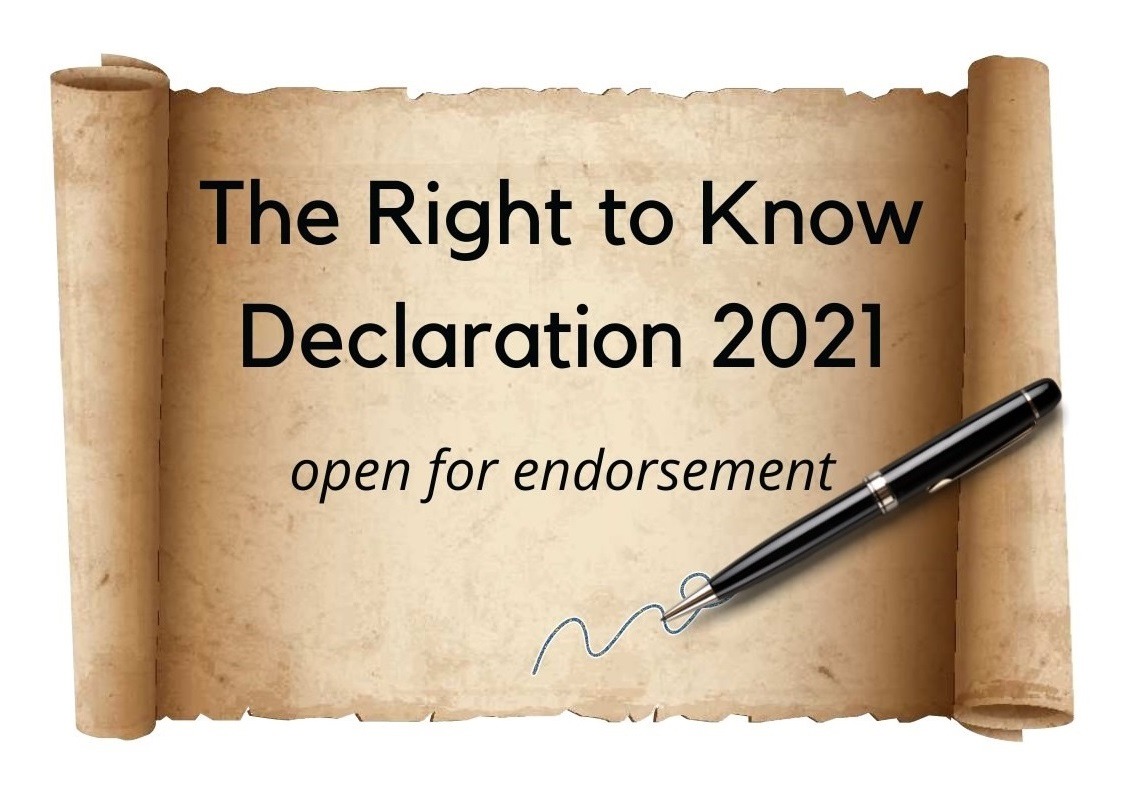On 14 December 2021, The Right to Know Declaration 2021 was opened for endorsement at an event to discuss measurement of the right of access to information organised by Access Info Europe as part of the Open Government Partnership Global Summit.
The Declaration is open for endorsement by civil society organisations, IGOs, governments, information commissioners, academics and other individuals, and will serve as an action agenda for the right to information community for 2022 and beyond.
Organisational endorsements here / Individual endorsements here
The Right to Know Declaration arose out of debates convened by UNESCO to mark International Right to Know Day (known officially as the International Day for Universal Access to Information) on 28 September 2021. It has subsequently received input from civil society and inter-governmental organisations.
Helen Darbishire, Executive Director of Access Info Europe said:
“It’s exciting to have a comprehensive action agenda, informed by all the lessons we have learned during the global Covid-19 pandemic about the importance of the right of access to information, a right that will be essential as we address the pressing issue of climate change.”
The Right to Know Declaration enumerates the core principles of the right of access to information and identifies priority actions that should be taken by governments and inter-governmental organisations to ensure that this right can be enjoyed in practice, including:
- To establish and/or strengthen the independent oversight bodies;
- To put in place strong systems for proactive disclosure of information;
- To ensure that information is created and preserved, in particular in digital formats, and is released as open data;
- To deliver transparency to combat corruption, prioritising opening data on spending and public procurement data as well as company ownership and lobbying;
- To open data for development, equality, and inclusion;
- To measure compliance with the right of access to information.
Toby Mendel, Director of the Centre for Law and Democracy said:
“There have been many declarations on access to information over the years, focusing on standards; this one is particularly important as it also emphasises the importance of good implementation of legal regimes protecting this right.”
Marius Lukosiunas, UNESCO Advisor for CI sector, stated:
“The Right to Know Declaration, which calls on governments to strengthen data collection on the right of access to information, is a solid step forward made by the civil society organizations. It is only with accurate data that we can evaluate levels of compliance with this fundamental human right, and prioritize actions so that all countries achieve the Agenda 2030 goals.”
Read The Right to Know Declaration 2021 here.
For more information, please contact:
Helen Darbishire | Executive Director

